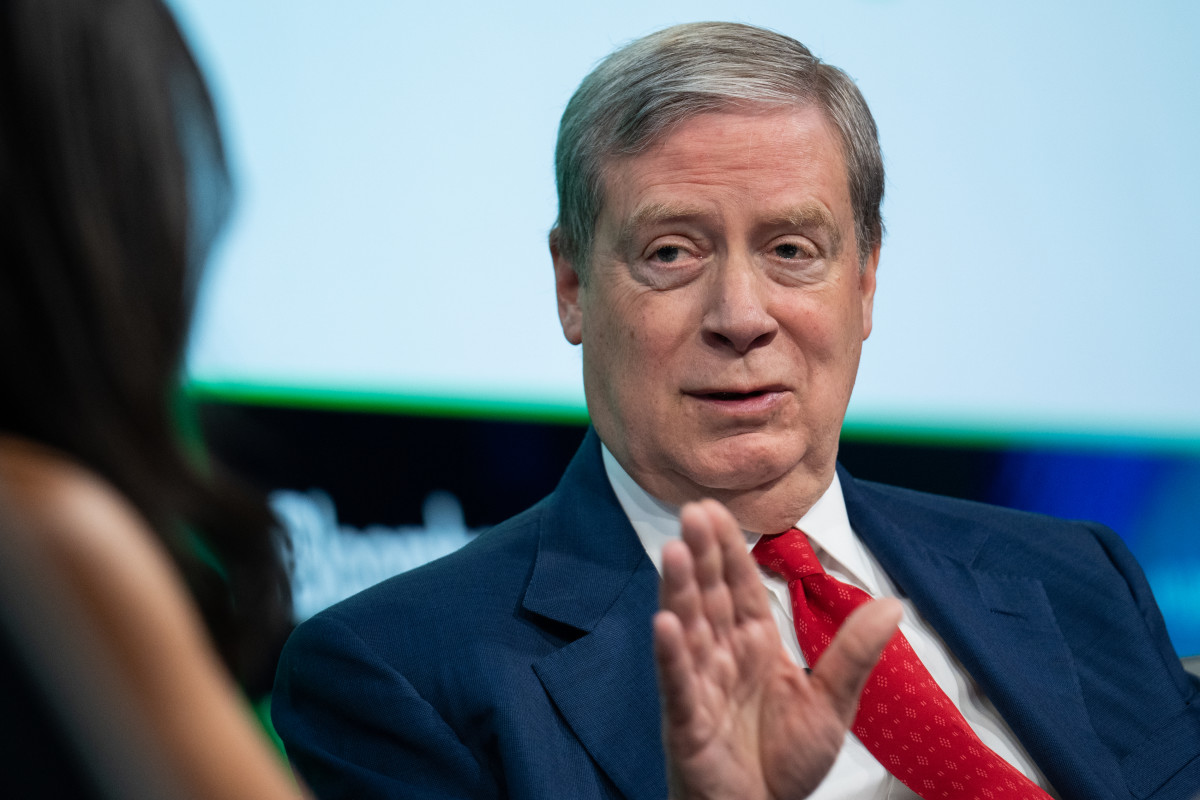
The billionaire investor Stanley Druckenmiller earned much of his superstar reputation working with investment icon George Soros from 1988 until 2000.
Their most celebrated play was a bet against the British pound in 1992. They “broke the Bank of England,” as commentators put it, reportedly earning a sweet $1 billion.
Related: World's biggest hedge fund boosts its stake in Nvidia stock
After he left Soros, Druckenmiller managed his own hedge fund, Duquesne Capital. In 2011, he switched to a family office – Duquesne Family Office. His successful track record makes investors eager to see his market activity.
While we can’t learn about his trades minute to minute, we can get a quarterly picture. Duquesne must file a 13F report with the Securities and Exchange Commission every quarter, detailing its holdings. And the family office just did so for the first quarter.

What did Druckenmiller trade?
So what were Druckenmiller’s biggest moves among well-known stocks? His largest addition was call options on the iShares Russell 2000 ETF (IWM) , establishing a position equal to 15.1% of his portfolio.
A call is an option to buy a security, in this case the ETF, at a set price by a set date. The trade means Druckenmiller is bullish on the Russell 2000 Index, which is composed of small-capitalization stocks.
Related: Nvidia earnings are key to market zeitgeist
Large-cap stocks have outperformed small-caps for more than 10 years, so some investors say small-caps are due for a rebound.
One factor that makes investing in small-caps attractive is that many don’t receive attention from analysts, the bulls say.
“We look for companies with undiscovered quality growth,” Ward Sexton, manager of William Blair Small-Cap Growth Fund (WBSNX) , told TheStreet.com.
“This is something more common in small-caps. Something fundamental has changed, or the business is materially different than people have known. Or the company’s doing fine, but it’s not covered by analysts.”
TheStreet Pro commentator James "Rev Shark" DePorre noted Druckenmiller’s Russell 2000 trade in his column Thursday.
Druckenmiller’s moves on tech, pharma stocks
Meanwhile, most of the big-time names on Duquesne’s first-quarter trade list came on the selling side.
Duquesne lowered its semiconductor titan Nvidia NVDA position by 5.5 percentage points to 3.6% of the portfolio, or $159 million. And it erased its 7.2% position in Nvidia call options.
The company’s shares have more than tripled over the past 12 months amid investor mania for artificial intelligence. Nvidia is likely the largest supplier of graphics-processing units used in AI activity.
Related: Stanley Druckenmiller just sold two AI tech stocks
Despite the company’s massive strength, some experts say it’s at or near a top. Morningstar analyst Brian Colello puts fair value for the stock at $910, compared with Thursday’s quote of $945.
Druckenmiller also shed shares of pharmaceutical stalwart Eli Lilly (LLY) , lowering the family office’s holding by 5.9 percentage points to 1.1% of its portfolio, or $48 million.
Lilly has soared 81% over the past 12 months amid euphoria over its diabetes and weight-loss drugs – Mounjaro and Zepbound respectively. Some experts say that move may be overdone as well.
Fund manager buys and sells:
- Cathie Wood buys $22 million of battered tech stock
- Fund manager of $100 million long/short mutual fund explains pair trade strategy
- Goldman Sachs revamps conviction list after stocks soar in Q1
Morningstar analyst Damien Conover sang the company’s praises last month, raising his fair-value estimate to $540 from $500. But the new level is still 30% below Thursday’s quote of $775.
Druckenmiller also unloaded software sultan Microsoft (MSFT) , reducing the portfolio’s holding by 1.5 percentage points to 10.7%, or $468 million. Nonetheless, it’s Duquesne’s second-biggest holding.
Microsoft has climbed 37% over the past 12 months amid enthusiasm for its own AI activity and the growth of its Azure cloud service. The AI activity includes its backing of OpenAI, a top provider of AI systems.
Morningstar analyst Dan Romanoff estimates Microsoft’s fair value at $435, compared with Thursday’s quote of $422.
Related: Veteran fund manager picks favorite stocks for 2024







